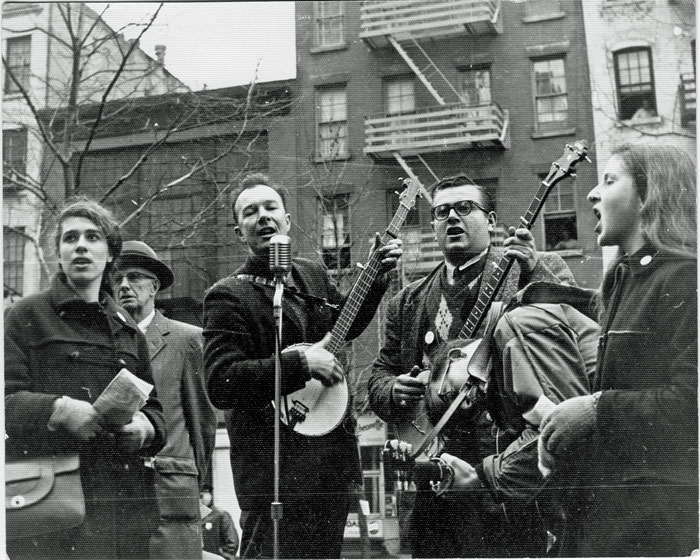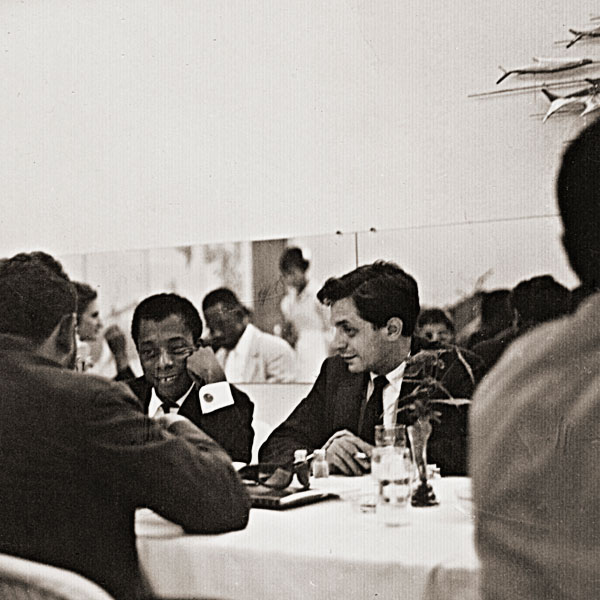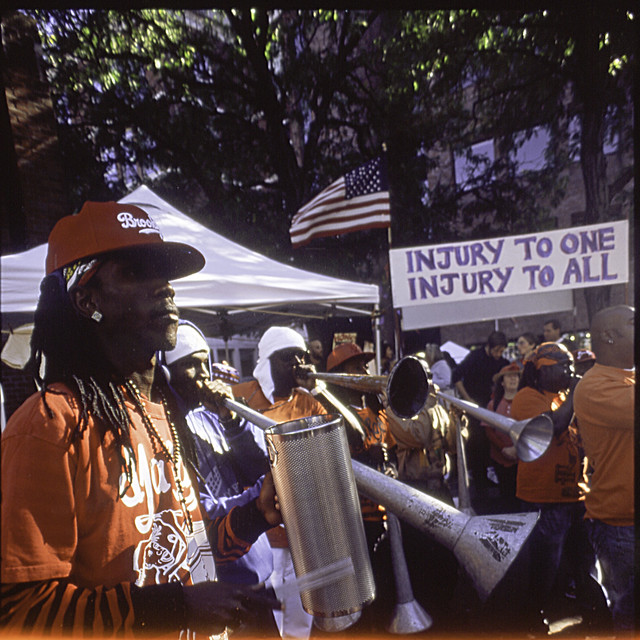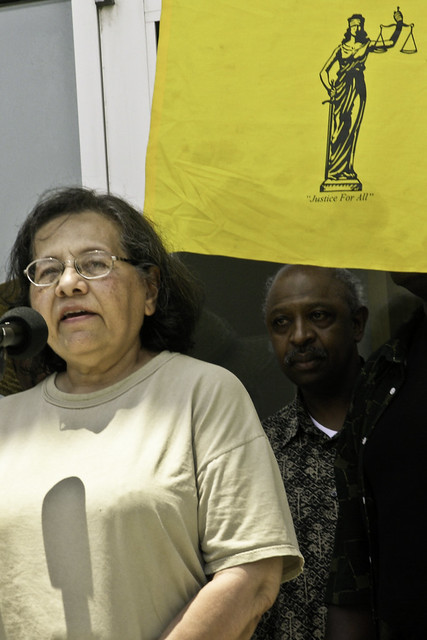(On January 14, 1994, my father spoke at a local synagogue in Schenectady, NY, as part of their annual celebration of Dr. King. My father worked for the Southern Christian Leadership Conference and served as special assistant to Dr. King in 1962 and 1963. The following is an excerpt from his speech. —BG)
By Paul Greenberg
Let me start by saying the fact that Martin Luther King, Jr. was my boss is less important than that he was my friend. In a significant way he was your friend as well. He was a friend of humankind.
I am not going to engage in the usual eulogy or redacting of Dr. King’s career. You have heard it and or read it so much that it has become common and I am afraid a bit banal. What I would like to do in the short time we have together this Shabbes is place the King legacy in a Jewish context.
I don’t intend to raise the question of Black-Jewish relations in part because I think it has been addressed to little avail at length by our community and in part because I think what I will raise speaks to the question in a more meaningful way than the usual discussion that tries to rekindle a better past that I personally don’t think ever existed. I hope you do not find it too vain that I begin with a story out of my own childhood.
I Was a Stranger in a Strange Land
I don’t remember whether I was seven or eight but the scene is vivid in the feeling part of my memory. We were living in Taunton, Massachusetts. Until that day (it must have been summer because I wasn’t in school) I was only vaguely aware of being Jewish. I had heard the family stories, I was somewhat embarrassed by my paternal grandmother’s accent and I loved Bible stories, especially the Exodus tale.
They were starting a baseball game. Sides were being chosen. I stood there expecting to be chosen around fourth or fifth. I was realistic about my ability. I wasn’t the best but I was far from the worst. I made up in determination what I lacked in size. While waiting in pleasant expectation lightning struck.
"Do you want Jewboy? I don’t want him on my side."
It took several seconds for me to realize he was talking about me.
JEWBOY! JEWBOY! JEWBOY!
The word crashed through my being. My insides were raw with pain.
“I am an American,” I screamed in a tearful combination of fear and rage.
"Jewboy!"
"Jew cry baby!"
"Mockie!"
"Christkiller!"
"Scram, Jews can’t play baseball."
I stood my ground and yelled the most meaningful words I could find: "Its a free country!"
I don’t know who threw the fist blow but a general melee ensued. I was badly bruised and I would like to believe several of my tormentors carried home some effects of my frantic and violent surge of energy.
If I Am Not for Myself Who Am I?
Arthur was in my class in public school. He came from a faded line of the town’s Protestant aristocracy. Arthur had a reputation for being wild that led most parents to instruct their children to shun him. Arthur was the nearest to a close friend that I had except for my cousin Marilyn.
News of the altercation traveled fast. Later that same day Arthur came over to exhibit boyish solidarity. He assured me that in any future confrontations he would be a gladiator on my side. He told me that no one could tell a Jew by his looks. He asked me if I thought it was a good idea to change my last name to Green.
I responded with avid indignation. "I am not a quitter!"
Arthur looked at me with new found respect. We sat for some time in quiet togetherness. After Arthur left I felt renewed by his friendship. Three days later he was dead.
"Wasn’t Arthur White a friend of yours," my mother asked?
I felt trapped between loyalty and safety. Admitting Arthur was a friend might bring on the order to stay away from such a wild boy. Denying my friendship would be a major sort of betrayal. I had not caught the nuance of the past tense and I cagily responded, "why?"
Mom matter-of-factly answered, "he was killed while riding his bike this morning. He was over on the Brockton road where he wasn’t supposed to be and he was struck by a car." I ran out side crying tears of rage at Arthur for deserting me.
Several days later I walked to the church where his funeral service was being held. As I approached to enter, I saw all my recent tormentors going in.
Panic overcame me. I ran until my breath was nearly spent and sat down under a tree and cried tears of loneliness and fear. When I was finished crying I made a pledge to myself that I would never again desert a friend.
And now one of Dr. King’s favorite poems as well as one of mine.
Incident
by Countee Cullen
Once riding in old Baltimore,
Heart-filled, head-filled with glee.
I saw a Baltimorean
Keep looking straight at me
Now I was eight and very small,
And he was no whit bigger,
And so I smiled, but he poked out
His tongue, and called me, "Nigger."
I saw the whole of Baltimore
From May until December;
Of all the things that happened there
That’s all that I remember.
What is the point? Simply put we who are conscious and actively Jewish live within two cultures Jewish and American. Our effort individually and collectively is to find a place of comfort and ease so that we can have both.
Let me say quickly and emphatically right here so that there is no mis-understanding: the Jewish American experience and the Black American experience are not the same nor can we find an easy equation between the two. I am indicating that we share this relationship to America. We want our own identity and we want to participate fully in our country’s bounty and its decision making.
Living in two cultures is not just the pain and degradation that the story and poem highlight. It is also the joy of sharing in the richness of your heritage. Dr. King once said about the African-American experience: “Life is part pain and part joy and lord knows we have had our share of both.”
(Dedicated to Francine Greenberg Reizen on the anniversary of her Bat Mitzvah)
—Speech at Temple Gates of Heaven (excerpt), Schenectady, NY, January 14, 1994, by Paul Greenberg














Recent Comments